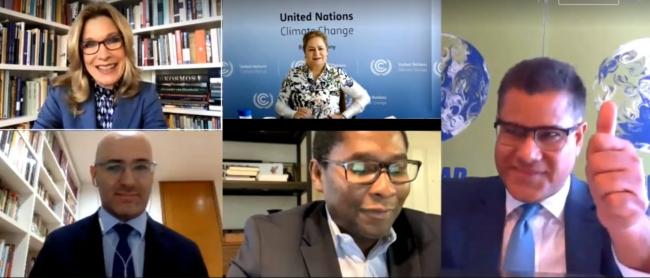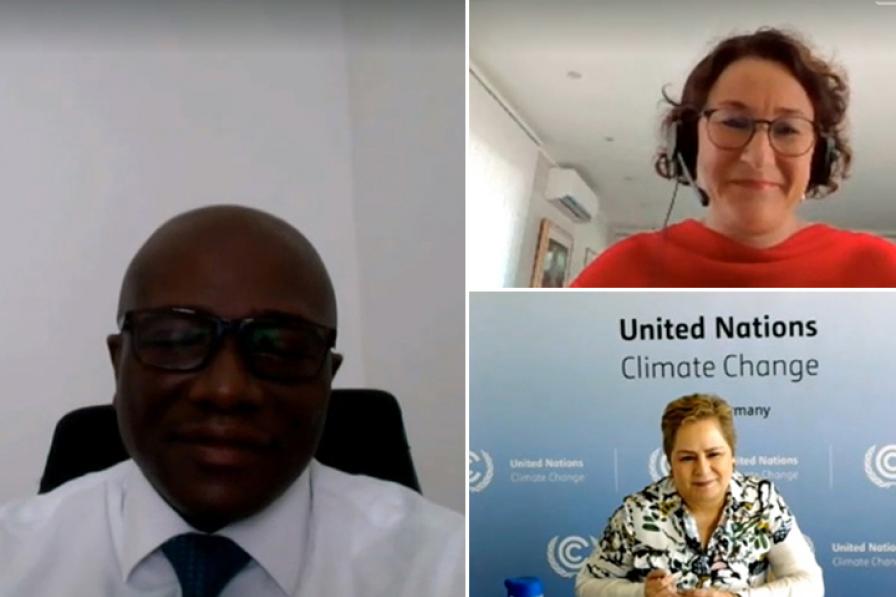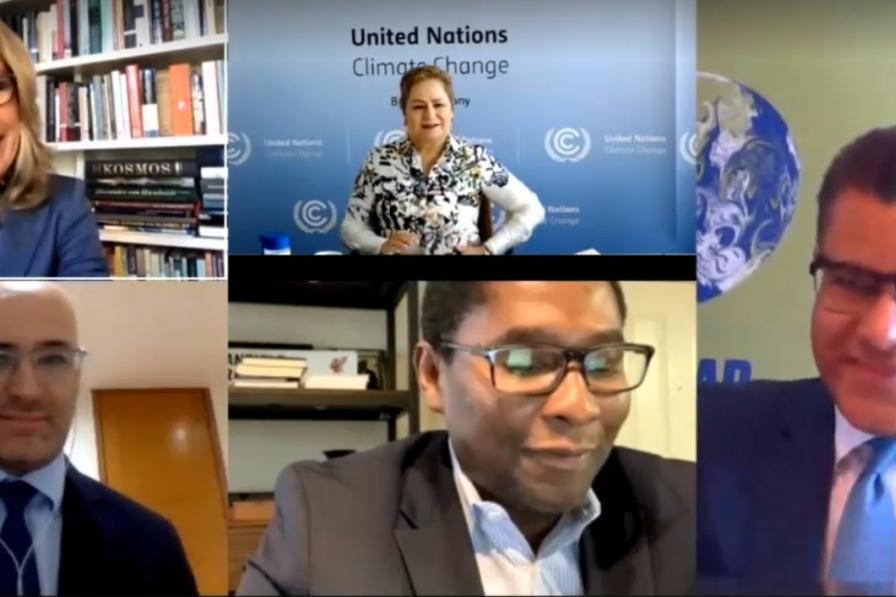The June Momentum for Climate Change, a series of virtual events organized by the UN Framework Convention on Climate Change (UNFCCC) Secretariat, opened Monday.
Tosi Mpanu Mpanu (Democratic Republic of the Congo), Chair of the Subsidiary Body for Scientific and Technological Advice (SBSTA), underscored the need for climate action. He highlighted the need to advance agreement on issues due for adoption at the next Conference of the Parties (COP), postponed to November 2021.
Marianne Karlsen (Norway), Chair of the Subsidiary Body for Implementation (SBI), said now is the time to ensure the COVID-19 recovery moves the world toward the Paris Agreement’s goals.
UN and the UNFCCC vision for 2020 in the light of the COVID-19 pandemic and opportunities for sustainable recovery
Melinda Crane, Deutsche Welle, moderated. During the conversation, all panellists called for a green and inclusive recovery from the pandemic.
Selwin Hart, Assistant Secretary-General for the Climate Action Team, outlined the UN Secretary-General’s six climate-related actions to shape the recovery. He said these range from investing in green jobs and tying bailouts to the Paris Agreement’s goals, to ending fossil fuel subsidies, accounting for climate risks, and ensuring no one is left behind as we recover better, together. He called for an “ecosystem of support” to help developing countries undertake a green recovery.
COP 25 President Carolina Schmidt (Chile) highlighted Chile’s new nationally determined contribution (NDC), particularly its inclusion of a just transition strategy. Julio Cordano, COP 25 Presidency, emphasized NDCs and long-term strategies are a framework for recovery efforts.
COP 26 President-designate Alok Sharma (UK) called for parties to submit ambitious NDCs and commit to further emissions cuts by 2030. He highlighted energy, transparency, nature-based solutions, adaptation, and finance as key COP 26 themes.
UNFCCC Executive Secretary Patricia Espinosa emphasized 2020 is still a critical year for countries to fulfill their commitments under the Paris Agreement, including by submitting enhanced NDCs by year’s end.
In response to questions, panellists highlighted public support to build back better, as well as growing support from investors, business leaders, and several countries.
Climate action and ambition 2020 in light of recent meetings such as the Placencia and Petersberg dialogues, as well as recent publications by scientific entities
Musonda Mumba, UN Environment Programme (UNEP), moderated.
Lois Young (Belize), Chair of the Alliance of Small Island States (AOSIS), said the Placencia Forum signalled that the Paris Agreement’s ambition cycle must begin without delay and without retreat. She highlighted three milestones for 2020: submitting new or updated NDCs, providing USD 100 billion per year, and progressing on COP 26 outcomes, such as common timeframes and Article 6 (market and non-market mechanisms).
Karsten Sach (Germany) reported the three messages of the Petersberg Dialogue: economic recovery plans need to align with the Paris Agreement and 2030 Agenda for Sustainable Development; green recoveries need to happen worldwide; and enhanced NDCs and long-term strategies should not be postponed.
Niklas Hoehne, New Climate Institute, characterized the Coronavirus-related reduction in emissions as a postponement. He noted that governments could spend 10-30% of their GDP on the recovery effort, and 2.5% of GDP would pay for the green technologies to meaningfully address the climate crisis.
In response to questions, panellists stressed the need to support municipalities and developing countries. They also highlighted ending fossil fuel subsidies, improving energy efficiency, and building resilience.
Closing Segment
SBSTA Chair Mpanu Mpanu recalled that many speakers noted commitment to climate action and to drive a green, inclusive recovery. He underscored the important role of indigenous peoples as sources of climate solutions.
SBI Chair Karlsen remined participants that these virtual events have no formal standing and will not prejudge future discussions. She stressed the subsidiary and constituted bodies will support and guide parties during this unprecedented time.



